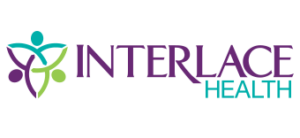Making Patient Signatures Secure, Private, and Compliant
An estimated 76.5% of healthcare providers still use paper consent forms. This is even though most of these organizations have been using electronic health records (EHRs) for nearly a decade.
Understandably, many organizations are reluctant to change any element of healthcare that’s so crucial to compliance and patient safety, but paper consent forms create their own problems. About 67% of patients are missing consent forms on the day of surgery, for example. This is a major obstacle to efficiency in healthcare and a serious compliance risk.
Fortunately, there is a better way. Electronic informed consent and remote patient intake solutions rely on eSignatures instead of traditional pen and paper. The benefits of eSignature solutions mirror the benefits of other digital healthcare solutions, giving organizations greater control and insight into every step of their operations. Electronic forms are easier to customize, more secure, and more accurate. This means there’s less risk of compliance violations, which benefits both patients and providers.
Here are a few specific ways electronic forms powered by eSignature improve upon their paper counterparts:
1. Better accessibility and security.
Unlike a traditional consent form, which can be modified after the fact and viewed by anyone with access to the document, an electronic consent form is only accessible to those who need to see or fill it out. Administrators can manage access to forms based on their own criteria, granting access only to the people who need it.
For patient intake forms that are being completed remotely, patients are required to create an account using two-factor authentication to validate their identity. In this case, patients need to provide their date of birth and click on a link sent to them either through email or text.
2. Greater flexibility.
Consent forms are rarely one-size-fits-all documents. Each procedure requires different information, and everything needs to be easy for patients to understand. Electronic consent forms make it simple to modify and annotate forms. Forms are updated instantly as older forms are simultaneously disabled, eliminating any chance of confusion or obsolete information playing a role.
Healthcare providers can fully customize each form, choosing between options like free text fields, drop-down lists, and checkboxes. Electronic forms also make it possible to link to additional information, using videos, pictures, or even specific landing pages to help patients better understand their upcoming procedures.
This flexibility helps hospital administrators and patients. Electronic consent forms are easier to access, quicker to complete, and simple to understand.
3. Reduced liability.
Informed consent comes with a host of hoops that need to be jumped through to reduce liability and ensure compliance with HIPAA regulations. Electronic informed consent makes this easier in a number of ways.
For one, fields can be populated automatically with existing information, virtually eliminating the risk of errors from repeatedly filling out forms manually. There are also built-in safeguards to ensure that every patient has everything filled out before the day of surgery.
eSignature also enables every document to be filed and archived instantly. There’s no need to manually scan forms, mitigating the risk that something gets lost or misfiled. And with eSignature solutions, every form is automatically locked in and stamped with the date and time of signing, verifying the authenticity of each document.
Most healthcare organizations have already been relying on EHRs for years. The next step should be to continue that digital journey and adopt electronic informed consent, making the lives of patients and healthcare organizations easier.
Interlace Health can help you take this step, with a comprehensive platform of digital healthcare solutions equipped with eSignature that can integrate seamlessly with your EHR and other existing technologies. To learn more about our eSignature solution, download our whitepaper on the topic here.
ABOUT THE AUTHOR:
 Over the past five years, Lauren Ziegler has been a member of Interlace Health’s Marketing team, coordinating and executing marketing communication initiatives, such as copywriting and content management, public and media relations, social media, and corporate communications. She has over a decade of experience in working with technology companies. Lauren is passionate about helping the healthcare community understand Interlace’s Health’s value, vision, and commitment to improving experiences for providers, patients, and staff.
Over the past five years, Lauren Ziegler has been a member of Interlace Health’s Marketing team, coordinating and executing marketing communication initiatives, such as copywriting and content management, public and media relations, social media, and corporate communications. She has over a decade of experience in working with technology companies. Lauren is passionate about helping the healthcare community understand Interlace’s Health’s value, vision, and commitment to improving experiences for providers, patients, and staff.





